News
- Friday 17.01.2020 will be the last lecture. Last exercise class is on Friday, 31.01.2020.
- 16.12.19: Due to inconsistencies, we updated the lecture slides 12+13 and 15 in Moodle.
- 12.12.19: No Lectures on 13.12.19 and 20.12.19!
- In accordance with what we announced during the exercises, we changed the rules of what you can bring to the exam.
You may bring one A4, two sided, handwritten, containing anything you want.
Why? We are not in a position to provide enough books, and to save the environment (a bit) we decided that it is not wise to have everyone print the lecture slides. - 22.11.19: Due to the “Tag der Informatik”, on December, 6th there won’t be any lecture or exercise!
- 25.10.19: No lecture on Thursday (31.10) as already announced in the lecture.
- 25.10.19: No lecture and exercise class on Friday (1.11) as this is holiday.
- 16.10.19: The lecture on Friday (18.10) will be cancelled.
- 16.10.19: First exercise sheet online.
- 10.10.19: Lecture slides with annotations only available in Moodle!
- 26.09.19: We are online.
Schedule
| Type | Day | Time | Hall | Start | Lecturer |
|---|---|---|---|---|---|
| Lecture | Thu | 10:30 – 12:00 | AH II | 10.10 | Katoen |
| Fri | 14:30 – 16:00 | AH III | 11.10 | Katoen | |
| Exercise | Fri | 10:30 – 12:00 | 5056 | 25.10 | Junges / Klinkenberg |
Slides
| No. | Date | Topic | Slides |
|---|---|---|---|
| 1 | 10.10.2019 | Introduction/ Motivation | l01.pdf |
| 2 | 11.10.2019 | Transition Systems | l02.pdf |
| 3 | 17.10.2019 | LT-Properties | l03.pdf |
| 4 | 24.10.2019 | Omega-regular Properties | l04.pdf |
| 5 | 25.10.2019 | Büchi Automata | l05.pdf |
| 6 | 07.11.2019 | Verifying Omega-regular Properties | l06.pdf |
| 7 | 08.11.2019 | Linear Time Logic | l07.pdf |
| 8 | 14.11.2019 | LTL Model Checking | l08.pdf |
| 9 | 15.11.2019 | Complexity of LTL Model Checking | l09.pdf |
| 10 | 21.11.2019 | Computation Tree Logic | l10.pdf |
| 11 | 22.11.2019 | CTL Model Checking | l11.pdf |
| 12 | 28.11.2019 | Branching Time vs Linear Time | l12.pdf |
| 13 | 29.11.2019 | – ” – | – ” – |
| 14 | 05.12.2019 | Fairness in Model Checking | l13.pdf |
| 15 | 12.12.2019 | Bisimulation Quotienting | l14.pdf |
| 16 | 09.01.2019 | Partial Order Reduction | l15.pdf |
| 17 | 10.01.2019 | Reduced Ordered Binary Decision Diagrams | l16.pdf |
| 18 | 16.01.2019 | Symbolic Model Checking With BDDs | l17.pdf |
| 19 | 17.01.2019 | Symbolic Model Checking with SAT | l18.pdf |
Exercises
| No. | Handed Out On | Date Due | Exercise Sheet |
| 1 | 16.10.2019 | 25.10.2019 | ex01.pdf |
| 2 | 25.10.2019 | 08.11.2019 | ex02.pdf |
| 3 | 10.11.2019 | 15.11.2019 | ex03.pdf |
| 4 | 15.11.2019 | 22.11.2019 | ex04.pdf |
| 5 | 22.11.2019 | 29.11.2019 | ex05.pdf |
| 6 | 05.12.2019 | 13.12.2019 | ex06.pdf |
| 7 | 13.12.2019 | 20.12.2019 | ex07.pdf |
| 8 | 04.01.2020 | 10.01.2020 | ex08.pdf |
| 9 | 10.01.2020 | 17.01.2020 | ex09.pdf |
| 10 | 24.01.2020 | 31.01.2020 | ex10.pdf |
Exam
| Date | Time | Location | |
|---|---|---|---|
| First exam | 20.02.2020 | 14:30-16:30 | Aula 2 (2352|021) |
| Re-exam | 13.03.2020 | 14:30-16:30 | Aula 2 (2352|021) |
You are allowed to bring one a4, two sided, handwritten containing your own notes.
Motivation
In 2008, the ACM awarded the prestigious Turing Award – the Nobel Prize in Computer Science – to the pioneers of Model Checking: Ed Clarke, Allen Emerson, and Joseph Sifakis.
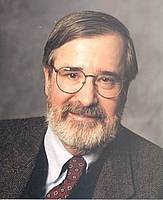
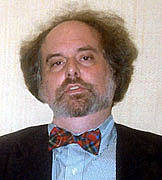
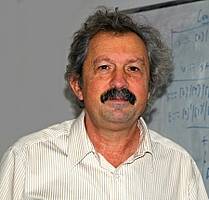
Why?
Because model checking has evolved in the last twenty-five years into a widely used verification and debugging technique for both software and hardware.
It is used (and further developed) by companies and institutes such as IBM, Intel, NASA, Cadence, Microsoft, and Siemens, to mention a few, and has culminated in a series of mostly freely downloadable software tools that allow the automated verification of, for instance, C#-programs or combinational hardware circuits.
Subtle errors, for instance due to multi-threading, that remain undiscovered using simulation or peer reviewing can potentially be revealed using model checking. Model checking is thus an effective technique to expose potential design errors and improve software and hardware reliability.
But how does it work, that is, what are its underlying principles?
That’s exactly the focus of this lecture series!
We will show that model checking is based on well-known paradigms from automata theory, graph algorithms, logic, and data structures. Its complexity is analyzed using standard techniques from complexity theory.
Contents of the Lecture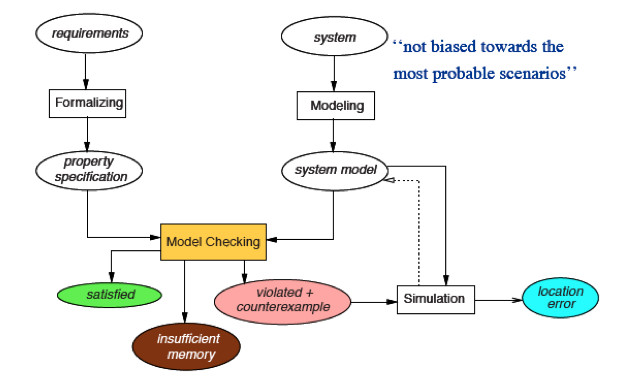
Model checking is based on, well, checking models. So, we first start by explaining what models are, and will make clear that so-called labeled transition systems, a model that is akin to automata, are suitable for modeling sequential, as well as multi-threading programs.
This is followed by a detailed study on various classes of system properties such as safety, liveness, and fairness. It will be shown how finite automata as well as variants thereof that accept infinite words are suitable for verifying regular properties.
The linear-time and branching time temporal logics LTL and CTL are then introduced and compared. Model checking algorithms for these logics together with detailed complexity considerations are covered.
Finally, abstraction techniques based on bisimulation and simulation relations are covered. These techniques are at key techniques to combat the state explosion problem.
Prerequisites
We expect students to have some basic knowledge in:
- Automata Theory
- Mathematical Logic
- Discrete Mathematics
- Complexity Theory
- Algorithms and Data Structures
The course book (see below) will contain a summary of the issues in these areas that are relevant to this lecture series. We believe that this course is also well-suited for students in electrical engineeering and mathematics.
Materials
The lectures and all materials are in english. The slides will be made available via this webpage during the course.
The course is based on:
Principles of Model Checking
by Christel Baier and Joost-Pieter Katoen
MIT Press, 2008.
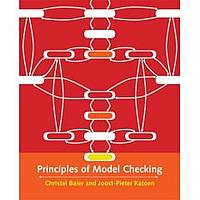
An errata document to the book may be found here.
It is possible to buy a book (about 40 euros), but there is no need to do so as there are various copies of the book available at the CS library.
The course will basically cover Chapters 1 through 7 (upto section 7.3).
Additional literature:
- E.M. Clarke, O. Grumberg, D.A. Peled: Model Checking, MIT Press, 1999
- M. Huth and M.D. Ryan: Logic in Computer Science – Modelling and Reasoning about Systems, Cambridge University Press, 2nd edition, 2004
- K. Schneider: Verification of Reactive Systems, Springer-Verlag, Texts in Theoretical Computer Science. An EATCS Series, 2004